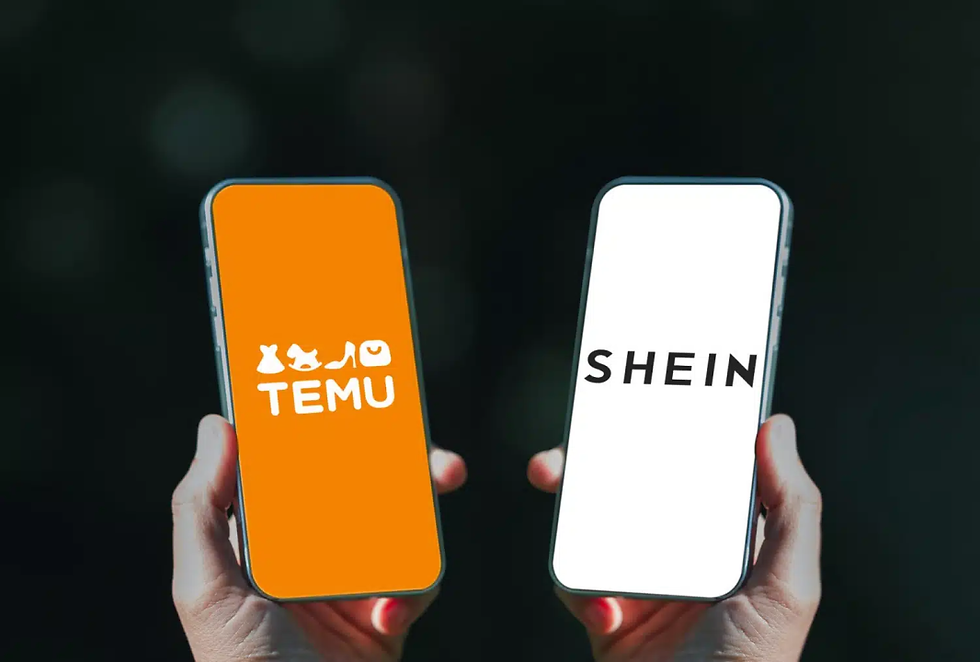China Digital Digest Weekly: Exploring the Chinese Digital Landscape
- ClickInsights
- Feb 7
- 4 min read
Hi folks, we are back with our weekly edition of China’s Digital Digest, wherein we bring you weekly updates on China’s digital space. The report takes a quick glance at China’s complex and rapidly evolving social media landscape by providing updates on the latest happenings across the social media industry. Here are the major highlights of the report.
1. Alibaba’s Updated Qwen AI Model Overtakes DeepSeek’s V3 in Chatbot Ranking
Chinese e-commerce giant Alibaba Group Holding’s latest open-source Qwen artificial intelligence (AI) model surpassed DeepSeek-V3 to become the top-ranked non-reasoning model from a Chinese developer, according to a third-party benchmarking and ranking platform, highlighting the rapid pace of Chinese firms’ advance in the emerging technology.

Alibaba Cloud’s Qwen2.5-Max, launched during the Lunar New Year holiday, has climbed to seventh place on Chatbot Arena, a benchmarking project developed by computer scientists from UC Berkeley to evaluate the performance of large language models (LLMs) – the technology underpinning chatbots such as OpenAI’s ChatGPT. Rankings are determined by users voting on the quality of the output.
2. China’s Chip Firms Embrace DeepSeek in AI Self-Sufficiency Drive
DeepSeek has given China’s artificial intelligence (AI) push a shot in the arm, as the country’s chip developers and cloud service providers rush to support the start-up’s increasingly popular models.

Chinese tech titans such as Tencent Holdings and ByteDance have released DeepSeek large language models through their cloud service platforms after the Chinese startup's open-source artificial intelligence chatbot DeepSeek-R1 caused a global sensation. Launched on Jan. 20, DeepSeek-R1 topped the free download charts on Apple's App Store in China and the United States on Jan. 27, surpassing OpenAI's ChatGPT in the US and turning heads in Silicon Valley and beyond for its high performance at low cost, positioning it as a major challenger to proprietary models from US rivals.
3. Chinese E-Commerce in Spotlight as EU Targets Flood of Small Packages
The European Commission is pushing to scrap a rule that gives low-value shipments duty-free access to the EU as it looks to clamp down on a flood of small packages from China.

The bloc’s executive branch proposed removing the tariff-free access as part of a flurry of directives aimed at tackling the online sale of “often dangerous” goods, singling out Chinese retailers such as Shein and Temu as a major source of these products. Currently, packages valued at under €150 euros (US$156) can be sent to the European Union without paying tax. But with 12 million small-value parcels entering every day – 91 percent of which come from China, according to the commission – customs regimes are overwhelmed. The volume of small packages entering the EU rose from 1.9 billion to 4.2 billion a year between 2023 and 2024.
4. Shein Returns to India After a 5-Year Ban
Reliance Retail has launched an app in India to sell fashion wear from China’s Shein under a licensing deal, almost five years since Shein’s app was banned in the country after getting caught up in a diplomatic tussle.

Reliance, owned by billionaire Mukesh Ambani, launched the app. However, the firm did not announce the launch. The Shein India Fast Fashion app represents a departure from Reliance’s strategy of adding brands to its flagship fashion app Ajio – whose offering includes Superdry and Gap – as it competes with rivals such as Myntra from Walmart’s Flipkart.
5. China’s Online Sellers Mull Price Hikes to Offset US Tariffs
Chinese merchants selling to US customers online are looking to raise prices to offset the new tariffs imposed by the Trump administration and rising shipping costs after the United States Postal Service (USPS) temporarily stopped receiving parcels from mainland China and Hong Kong.

Cross-border merchants face new challenges in selling to American shoppers after US President Donald Trump on Tuesday raised tariffs on Chinese goods by 10 percent and removed the “de minimis” exemption. The de minimis policy, which allowed small packages worth less than US$800 to enter the US duty-free, played a major role in driving the growth of China’s cross-border e-commerce industry. Nearly half of all packages shipped under de minimis came from China, the US congressional committee on China said in a report in June 2023.
6. JD.Com-Backed Gadget Platform Banks on China’s Trade-In Subsidy to Spur Volume
ATRenew, China’s leading online trading platform for pre-owned consumer electronics, stands to gain from Beijing’s subsidy program aimed at revitalizing consumer spending.

According to Jeremy Ji Zixiao, ATRenew’s general manager of international business and head of strategy and investor relations, the company, in collaboration with e-commerce partner and stakeholder JD.com, has launched promotional campaigns aligned with the Lunar New Year holiday. As of January 20, Beijing has been offering a 15 percent subsidy for consumers purchasing new smartphones, tablets, and smartwatches priced up to 6,000 yuan (US$828), with a maximum discount of 500 yuan per item per category. This initiative is part of a broader nationwide trade-in program introduced last year to stimulate consumption and support the manufacturing sector.
Our discreet approach means you can enjoy your time without worrying about judgment. We understand that some experiences are private, and our commitment to confidentiality allows you to engage freely and enjoy the company of our escorts without fear of outside perceptions or scrutiny.
Inderlok Escort Service
Escort Service Jhilmil
Escort Service in Kalkaji
Kalyanpuri Escort
Escort in Kashmiri Gate